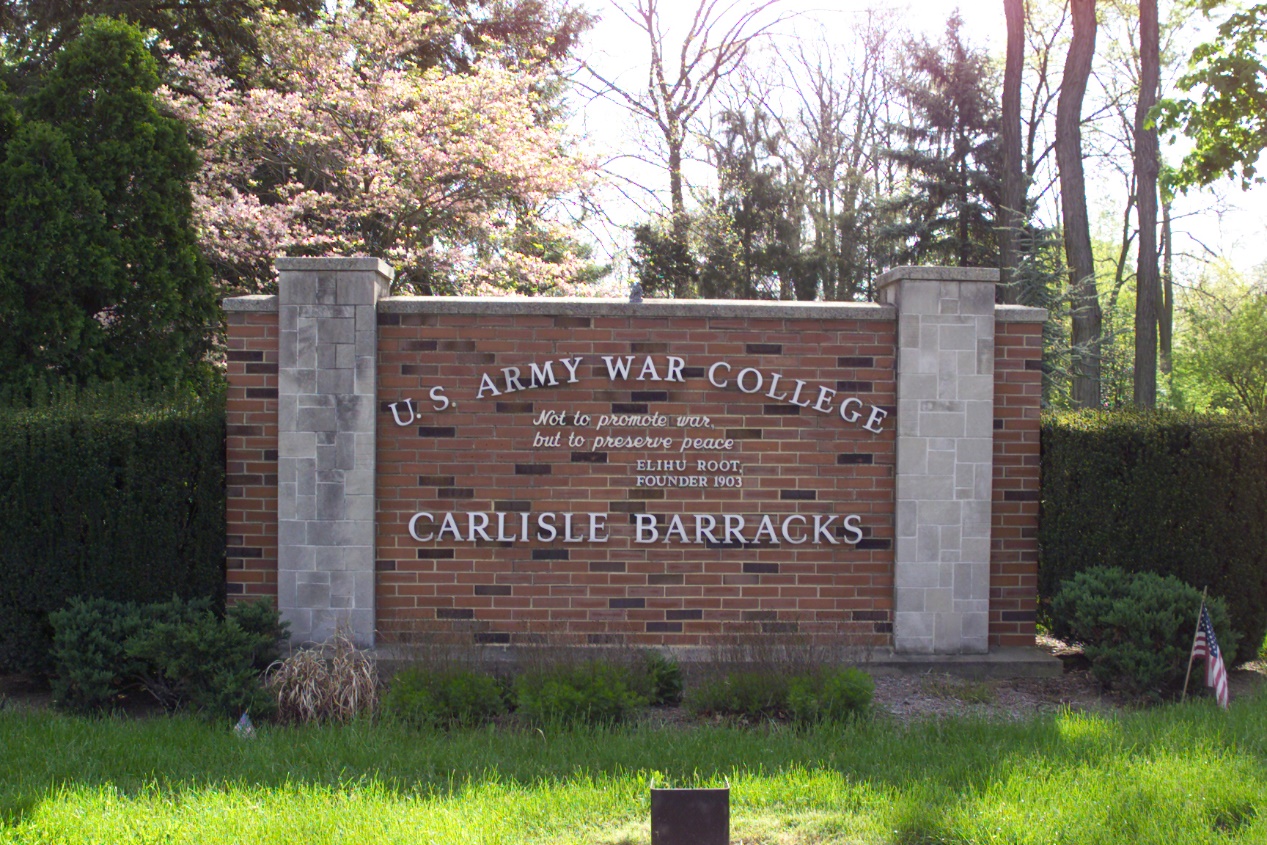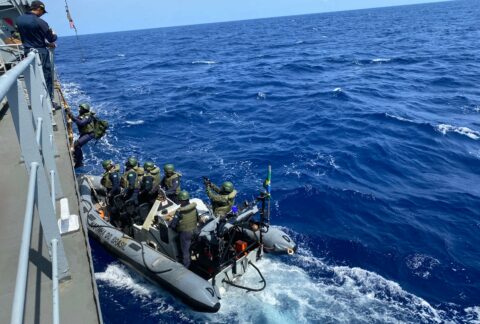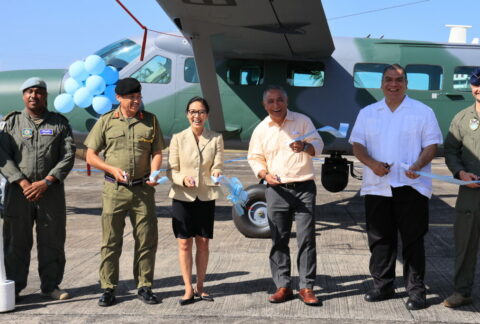In the uncertain times of the 21st century, the role of diplomacy, multilateral cooperation, international organizations, and coalitions of allies and partners is more important than ever before. Today, the challenges facing most nations are less about state-on-state military conflict and more about asymmetric threats from terrorist or criminal groups, economic opportunity and stability, threats to the environment and humanitarian crises, and government institutions delivering needed services to citizens. This has become especially evident during the COVID-19 pandemic, in which international government and nongovernmental institutions have had to increase information sharing, communication, and cooperation around the globe. Within this context, defense and security institutions worldwide must also develop greater capacity for information sharing, coordination, and cooperation to address the many shared challenges facing our nations. The United States Army War College (USAWC) in Carlisle, Pennsylvania, and similar professional military institutions serve as critical enablers of military support to our collective efforts to address shared challenges.
USAWC is an Army institution that serves the professional education needs of strategic- or national-level U.S. government civilian and military organizations preparing officers and civilians to advise senior leaders, and eventually serve as policy and decision makers at the highest levels of their department. Students can earn an accredited master’s degree in Strategic Studies, designed for senior military and civilian leaders, at the lieutenant colonel and colonel rank, with about 22 years of service. It serves to prepare them for service at the strategic level in a joint, interagency, intergovernmental, and multinational security community.
The school develops strategic leaders by providing a strong foundation of wisdom, grounded in mastery of the profession of arms, and by educating future leaders in the theories of war, strategic leadership, defense management, national security policy, theater strategy, regional studies, and elective courses on key strategic issues.
International students
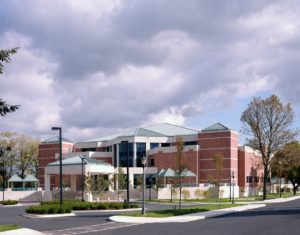
The campus is ideally located just two hours by car from the nation’s capital in Washington, D.C. This location enables frequent engagement and enriching exchanges with national-level military and civilian strategic policy and decision makers, and attracts top practitioners and academic experts for a superior educational experience. The USAWC experience is not only exceptional in the quality of the curriculum, research and teaching faculty, and resources, but in the quality and diversity of the student body. The student population is comprised of joint and interagency, military and civilian, U.S. and international personnel.
“The experience at the USAWC has exceeded my expectations. Seminars are fascinating. Each student’s opinion matters and enriches the debate with frankness and strong arguments. Training provided at the USAWC is very beneficial for future professional development. Readiness to take on the challenges of strategic leadership is enormous, especially when it comes to decision-making affecting organizations like the army. This educational institution has proven itself to be very competent and prepared. Even in a pandemic year, in which we all had to take on new challenges, all the teachers were up to the challenge at the USAWC. I am very grateful for the education that the USAWC is providing me,” Class of 2021 fellow Chilean Army Lieutenant Colonel Ricardo Kaiser Onetto told Diálogo.
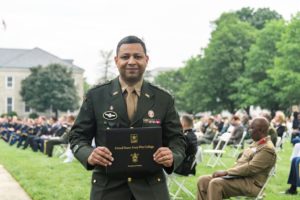
During a typical year, class composition is about 380 students, including about 80 international officers. The number of students in the class of 2021 is slightly less in all categories due to COVID-19. Seminar composition, combined with the adult learning model, is key to the USAWC educational system: a deliberate effort to create a diverse, representative group of joint, interagency, international professionals.
A seminar aggregates more than 300 years of diverse experience and knowledge. Faculty members liberally draw upon this experience in seminar discussions.
Class of 2019 and former USAWC exchange professor Brazilian Army Colonel Everton Pacheco da Silva was initially surprised at how much the faculty and students sought the perspective and advice of international students and faculty. “It was amazing — the level of trust and confidence placed in us by the U.S. Army, always asking for our opinions and points of view… I was truly impressed by the variety of subjects from our countries and regions that the USAWC was presenting and asking for our insights. We could feel, without a doubt, the genuine interest in hearing and weighing our points and opinions during the seminar classes. They really sought to consider (and learn from) our points of view. The U.S. Army officers seemed genuinely interested in receiving our contributions and experiences.”
Potential for leadership at the strategic level
Students are selected based on their potential for leadership at the strategic level. All students are selected through a competitive, centralized selection process; officers chosen for schooling are typically in the top 10 percent of their peer groups. Civilian students are selected through their organization’s chain of command and must be the equivalent rank of a lieutenant colonel or higher.
The Chief of Staff of the U.S. Army invites international fellows (IF) from select countries to attend the resident and distance education programs each year. These invitations are normally extended through the U.S. embassies to the ministry of defense or military forces’ commands in each country. According to Class of 2021 fellow Argentine Army Lieutenant Colonel
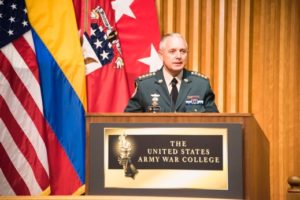
Agustín Garcia Verdous, “It is definitely a unique opportunity to be able to build personal relationships between senior Latin American and American officers and thus strengthen the commitment between nations from personal interaction. Based on trust and mutual knowledge, these relationships can contribute to or promote future solutions to certain challenges impacting the region.”
One of the finest aspects of the resident class each year at the USAWC is the cohort of IF. Over 70 international graduates have been inducted into the USAWC International Fellows Hall of Fame, which was established in 1987 to provide a prestigious and visible means of honoring IF graduates who have attained the highest positions in their respective nations’ armed forces or who have held an equivalent position by rank or responsibility in a multinational organization.
This alone reflects the caliber of international officers sent to attend USAWC. International officers are termed “international fellows” to reflect their dual role, learning and contributing to the learning of others by representing their countries’ and regional perspectives. For the last 42 years, the best and brightest from partner and allied nations’ militaries have attended classes alongside their U.S. counterparts.
Living and studying in the United States, international officers develop a greater understanding of U.S. values and culture, along with formulation of national-level strategies, policy, and decision-making from the national security perspective. IFs attend a six-week orientation prior to the start of the academic year, with two weeks allowing students and their families to get settled, as well as four weeks of field study including classes, visits, and experiential engagements.
IFs are fully integrated into the seminar learning experience with U.S. students, participating in seminar dialogue and study, research, and writing on subjects of significance to security interests of their own nations. IFs establish mutual understanding and rapport with student colleagues and enrich the educational environment of the USAWC. They are central contributors to the breadth of knowledge and learning — both inside and outside the classroom. Bringing the perspectives and experiences of their nations’ militaries and cultures, they return home with the same from their U.S. classmates, but also the other international students from close to 80 different countries.
Lasting professional and personal relationships
When graduates recount the most valuable takeaway from the Army War College year, invariably they’ll point to the benefit of lasting professional and personal relationships. The program provides incomparable opportunities for professional networking with other students, faculty experts, and guest speakers, during national security staff rides and in frequent engagement with U.S. strategic leaders. The bonds built in person and through virtual platforms and collaboration, both inside and outside the classrooms, are lasting and critical for any professional in today’s complex world. The class of 2021 includes Western Hemisphere senior officers from Argentina, Brazil, Canada, Chile, Ecuador, El Salvador, Guatemala, Mexico, the Netherlands, and the United Kingdom. Officers and families from all countries have additional opportunities to share in the experiences and to get to know one another.
“The experience of international students is certainly relevant in several respects. In the case of Chile, we maintain a very good relationship with all countries in the region, but with some of them we have advanced in other instances of exchange, training, strength and organizational development, academics, and others. For example, with Argentina we have a combined joint task force to respond immediately to UN requirements. With Brazil, we have important exchanges and are present in Colombia in the Army of the Future Transformation Command. Thus, the presence of students from those countries in the USAWC program allows us to share ideas, knowledge, and strengthen personal ties based on joint participation in this prestigious U.S. Army program, so all these relationships generate a common view that allows us to approach and strengthen alliances,” said Lt. Col. Kaiser Onetto.
It’s through the high caliber of the faculty, curriculum, and students, as well as the unforgettable experiences and lasting bonds of friendship, that the USAWC shines as a premier joint and international professional military education institution.

